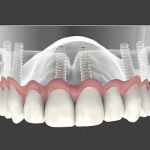How to Maintain Oral Health with Braces: Essential Tips and Advice
Having braces is an exciting step toward achieving a perfect smile, but it comes with its own set of challenges. When I first got my braces, I didn’t realize how much extra care they would require. But as I got used to wearing them, I quickly learned the importance of maintaining good oral health throughout the process. In this article, I’ll walk you through the best ways to care for your teeth and braces, sharing some of the tips and advice that helped me along the way.
1. Brushing with Braces: The Foundation of Oral Health
The first thing I learned about braces care is that regular brushing is absolutely essential. The brackets and wires on braces can trap food and plaque, which can lead to cavities and gum problems if not properly cleaned. Initially, I was a bit overwhelmed, but over time, I figured out a routine that worked for me.
1.1 The Right Tools for Braces
To brush effectively with braces, you need the right tools. I found that using a soft-bristled toothbrush and orthodontic wax was key to cleaning around the brackets without causing damage. Many people recommend an electric toothbrush, as it makes brushing more efficient and can reach places that manual brushing might miss.
Another must-have tool is an interdental brush. These tiny brushes are perfect for cleaning between the brackets and under the wires, which is an area that traditional brushing often misses. If you don’t have an interdental brush, flossing with a floss threader can also work, though it takes a little more effort. I found that using both tools together helped me maintain a cleaner mouth.
1.2 Brushing Technique
When brushing, it’s important to make sure you reach every corner of your braces and teeth. I focused on brushing at a 45-degree angle to the gum line to ensure I cleaned thoroughly around the brackets. I also paid attention to the areas where the brackets are attached to the teeth, as food can easily get stuck there. Brushing for at least two minutes, twice a day, is vital. I made it a habit to brush after every meal to prevent food from lingering in my braces, which could cause plaque buildup.
2. Flossing with Braces: A Challenging but Necessary Step
Flossing with braces was something I initially struggled with, but I quickly realized how important it is for keeping my gums healthy. Food gets easily stuck between the teeth, and if left there, it can cause cavities or gum disease. I’ve found that using a floss threader made this step much easier. This tool allows me to thread the floss under the wire, making it easier to reach between my teeth and around the brackets.
2.1 Regular Flossing
Even though it can be tricky to floss with braces, it’s important to do so every day. The last thing you want is to end up with plaque buildup around your braces or between your teeth. Flossing removes food particles and plaque, ensuring that your gums stay healthy and your teeth remain clean. I made it a part of my routine to floss at least once a day, preferably before bed, to ensure my mouth was completely clean for the night.
3. Diet: What to Eat and What to Avoid
When I first got my braces, my orthodontist gave me a list of foods to avoid. Braces are sensitive to sticky, hard, and chewy foods that can damage the wires or get stuck in the brackets. I learned to stay away from foods like popcorn, chewing gum, hard candy, and corn on the cob, which could easily damage the brackets or get stuck in between the wires.
3.1 Foods That Help Maintain Oral Health
On the flip side, I also learned about the types of foods that are good for my teeth while wearing braces. Soft foods, such as mashed potatoes, pasta, cooked vegetables, and smoothies, are perfect for maintaining a healthy diet without risking damage to my braces. I also made sure to eat plenty of foods rich in calcium and vitamins, such as leafy greens and dairy products, to keep my teeth strong and healthy throughout the treatment.
3.2 Stay Hydrated
Drinking water throughout the day was another key tip I followed. Staying hydrated helps wash away food particles and bacteria from the mouth. I always made sure to have a water bottle with me so that I could rinse my mouth whenever needed, especially after eating. This simple habit helped keep my mouth clean and fresh during the day.
4. Regular Orthodontic Checkups: Maintaining Your Progress
Along with daily care, I quickly learned that regular visits to my orthodontist were crucial. Every six to eight weeks, I’d visit for adjustments and to ensure that my braces were doing their job. At these checkups, my orthodontist would tighten the wires, adjust the brackets, and provide advice on any specific issues I might be experiencing. Regular checkups are essential for making sure your braces are working effectively and that your teeth are shifting in the right direction.
4.1 What to Expect During Your Appointment
During my checkups, the orthodontist would make minor adjustments to my braces. This process is relatively quick, but sometimes it can cause some discomfort. My orthodontist always provided advice on how to manage the discomfort, and I appreciated the extra tips on how to take care of my teeth and braces between visits. Keeping up with these appointments is one of the best ways to ensure that your treatment goes smoothly and efficiently.
5. Protecting Your Braces During Physical Activities
If you’re like me, you probably enjoy playing sports or engaging in physical activities. However, I soon realized that playing sports with braces requires a little extra care. When playing sports like basketball or soccer, I made sure to wear a mouthguard to protect my braces from any potential impact. A mouthguard helps cushion the braces and reduces the risk of damaging them during physical activities. If you participate in sports, it’s definitely worth investing in a high-quality mouthguard.
5.1 Choosing the Right Mouthguard
My orthodontist recommended a specific type of mouthguard for those with braces. These are typically designed to fit over the brackets and wires, providing extra protection. While a standard mouthguard may work for some people, I found that getting one made specifically for braces made a big difference in comfort and protection. It’s a simple precaution, but it helped me avoid any unnecessary damage to my braces while staying active.







 Rollins & Petersen Orthodontics4.0 (348 review)
Rollins & Petersen Orthodontics4.0 (348 review) Audubon Dental Associates Ltd5.0 (6 review)
Audubon Dental Associates Ltd5.0 (6 review) Doc Bresler's Cavity Busters4.0 (363 review)
Doc Bresler's Cavity Busters4.0 (363 review) Smileawhile Dental4.0 (159 review)
Smileawhile Dental4.0 (159 review) Montclair Perio & Implant Specialists: Anne Hartnett, DDS0.0 (0 review)
Montclair Perio & Implant Specialists: Anne Hartnett, DDS0.0 (0 review) Dr. Shubha Soni-Gaur5.0 (1 review)
Dr. Shubha Soni-Gaur5.0 (1 review) The Importance of Oral Health Education During Pregnancy for a Healthy Pregnancy
The Importance of Oral Health Education During Pregnancy for a Healthy Pregnancy Best Tips for Brushing Your Teeth Properly for Healthy Gums: Essential Techniques for Oral Health
Best Tips for Brushing Your Teeth Properly for Healthy Gums: Essential Techniques for Oral Health Why Skipping Dental Checkups Can Lead to Bigger Oral Health Problems
Why Skipping Dental Checkups Can Lead to Bigger Oral Health Problems Advantages of Porcelain Dental Restorations
Advantages of Porcelain Dental Restorations How Can Diabetes Cause Tooth and Gum Problems? Preventing and Managing Oral Health Issues
How Can Diabetes Cause Tooth and Gum Problems? Preventing and Managing Oral Health Issues Healthy Habits for Promoting Good Oral Health and Hygiene: Tips for a Healthy Smile
Healthy Habits for Promoting Good Oral Health and Hygiene: Tips for a Healthy Smile